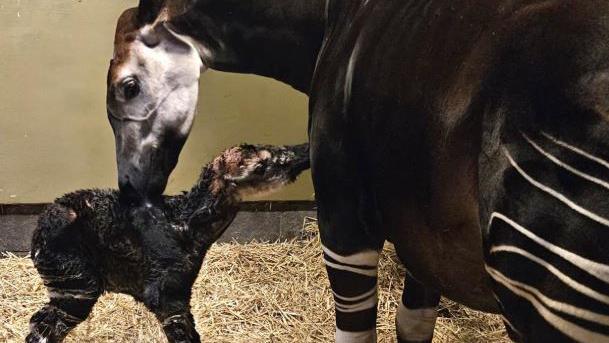Zoo celebrates third birth ahead of World Okapi Day
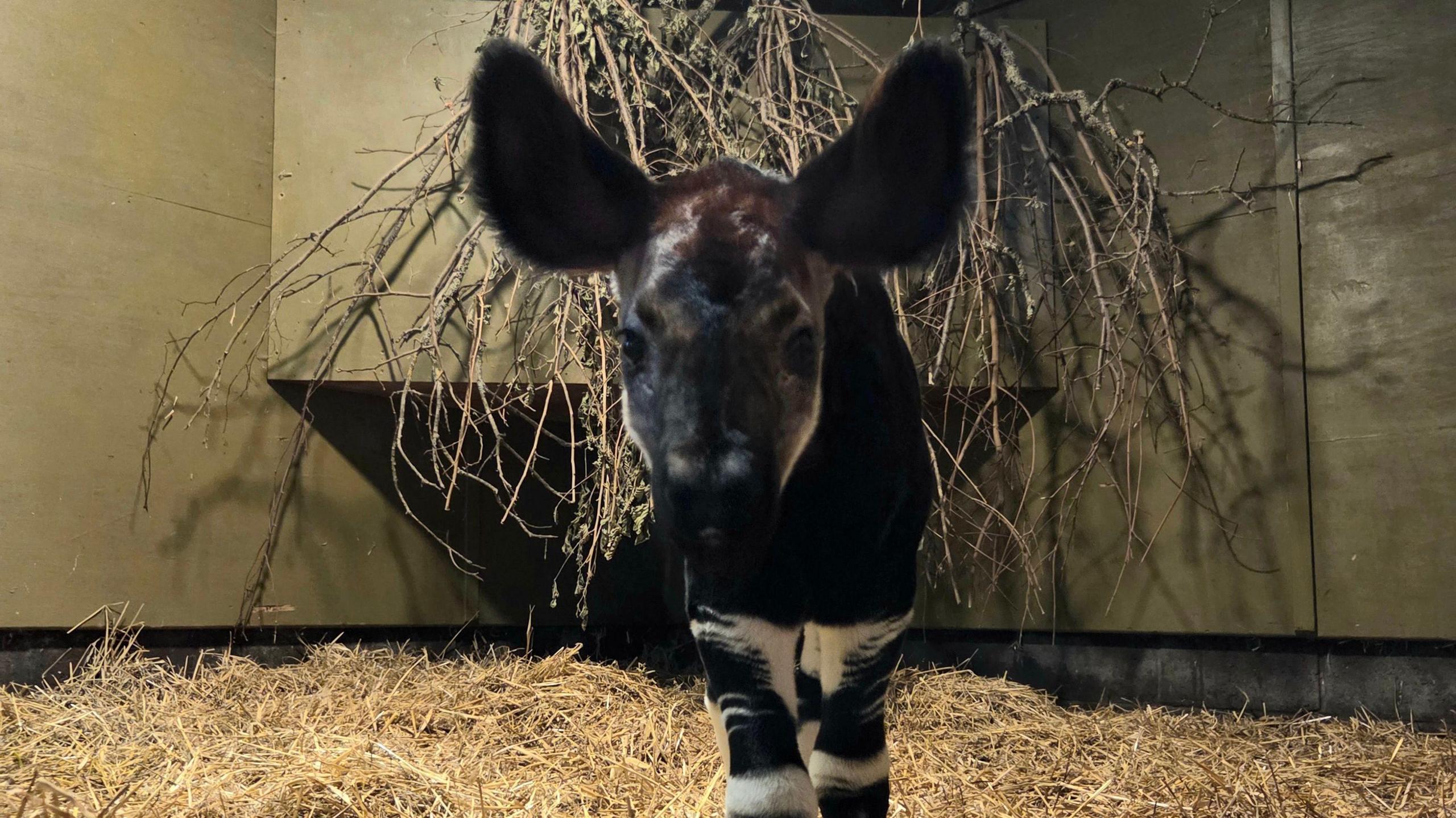
The okapi calf "is already showing signs of being curious and confident"
- Published
A Hampshire zoo has said it is "excited" to welcome the birth of an endangered Okapi calf for the third time in three years.
Marwell Zoo in Colden Common near Winchester celebrated the calf's arrival in September on World Okapi Day on Saturday.
To allow mother Daphne and her newborn plenty of peace and quiet, the okapi house at the Zoo is temporarily closed.
But visitors will still be able to see the other okapi in the neighbouring areas.
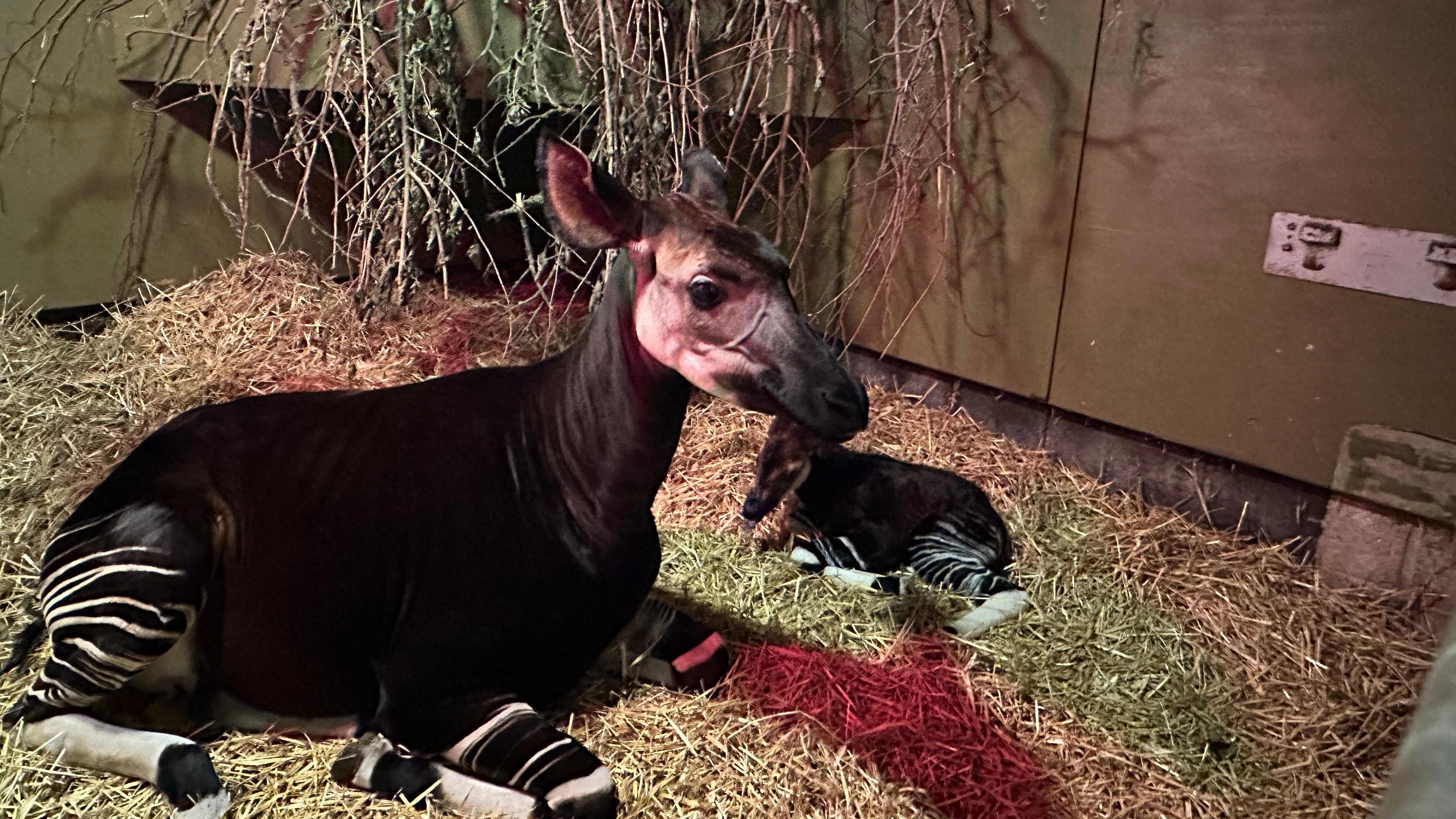
The zoo okapi house will remain temporarily closed to allow mother Daphne and the newborn plenty of peace and quiet
Okapi are often referred to as forest giraffes and are known for their striking zebra-like stripes and gentle nature.
Their tongue can be up to 30 cm long – allowing them to lick every part of their bodies, including their own eyeballs.
The species was last assessed in 2015 and is still included on the International Union for Conservation of Nature's, external red list of endangered species. .
"This amazing achievement is a testament to the skill and dedication of the zoo's animal care team and their success... helping to support this endangered species," Marwell keeper Zoe Newnham said.
"Before the arrival of the new calf, we created a dark, warm, cosy area known as a 'creep' to give mum, Daphne, space and privacy with the newborn, just as okapi would in the wild."
She said the calf was "already showing signs of being curious and confident".
"In the wild, okapi calves spend their first 40 to 60 days hidden away in their creep nesting," Ms Newnham said.
"During this time, okapi calves have evolved to not defecate, as any scent may attract predators, keeping them safe in their nesting period."
The calf will remain indoors during the colder months, only venturing outdoors when temperatures rise in the spring.
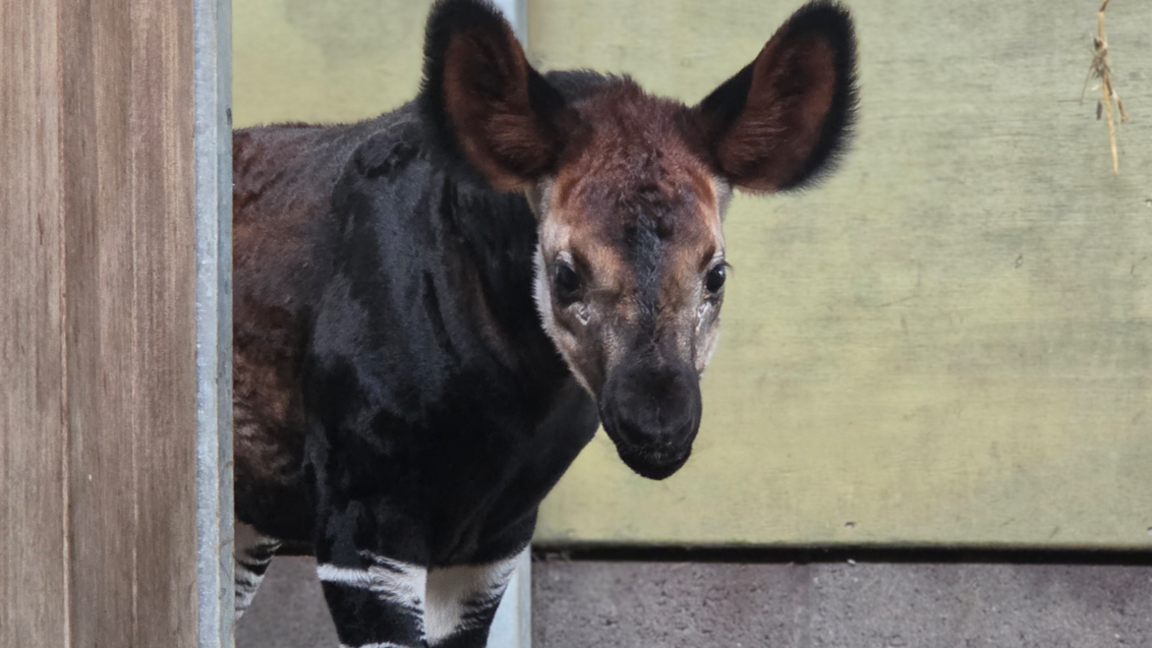
The new calf was born at Marwell Zoo on 10 September
Get in touch
Do you have a story BBC Hampshire & Isle of Wight should cover?
You can follow BBC Hampshire & Isle of Wight on Facebook, external, X (Twitter), external, or Instagram, external.
- Published5 October
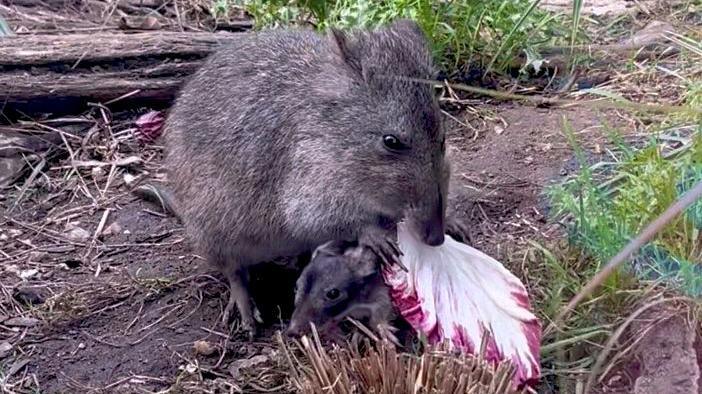
- Published19 July
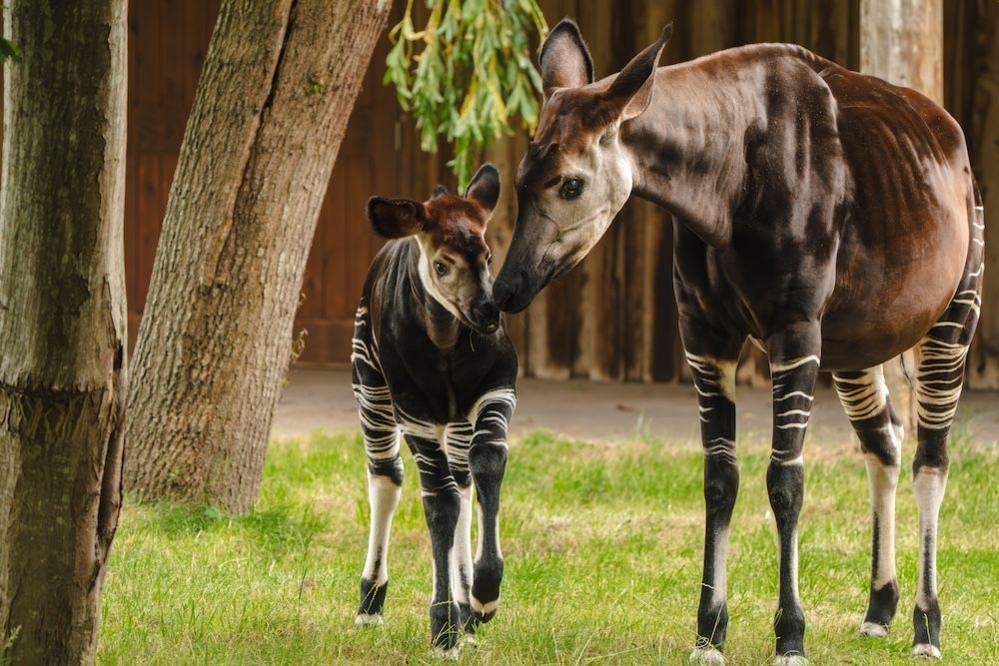
- Published24 December 2024
